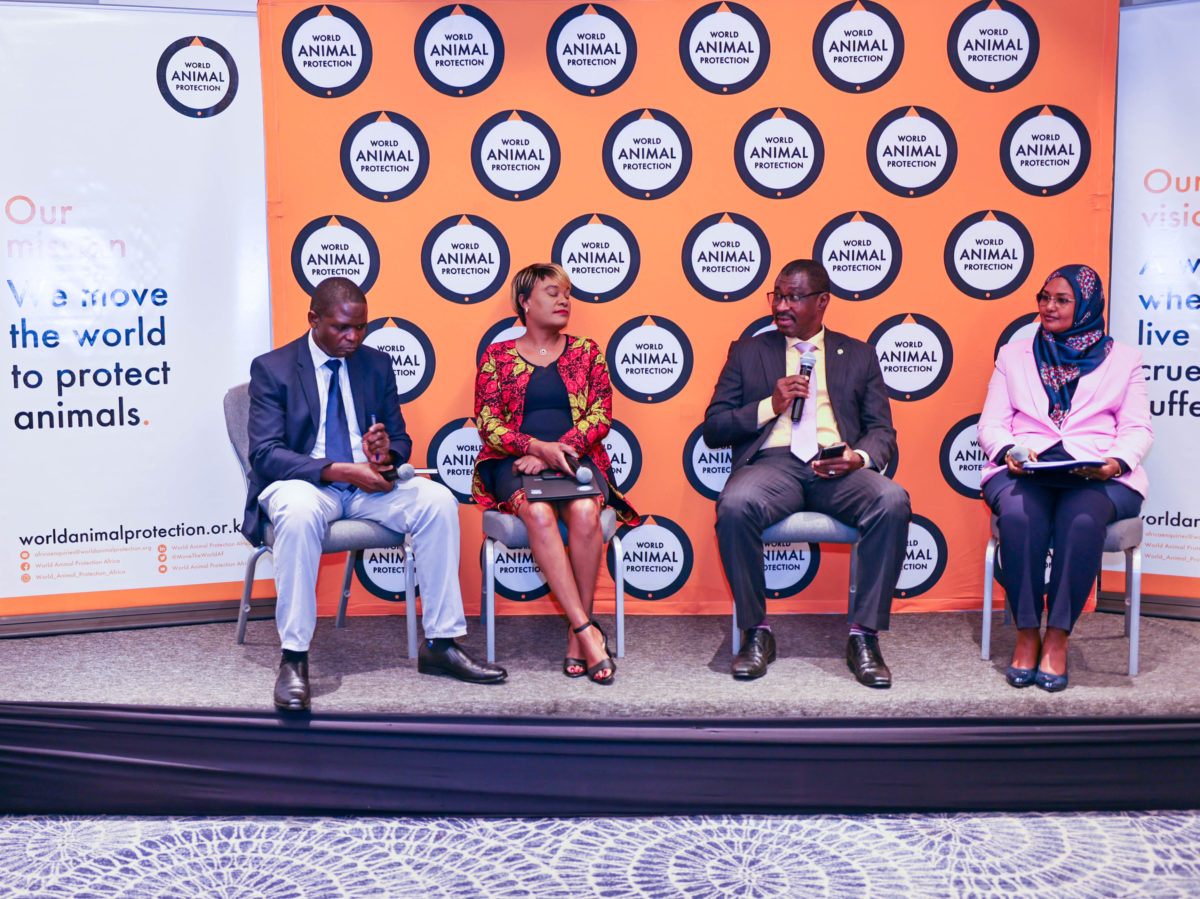Tennyson Williams the Director for Africa at World Animal Protection has urged African governments and the Africa Climate Summit 2023 to acknowledge the climate and environmental impact of unsustainable livestock production systems and push for adoption of a transition to humane, sustainable, and regenerative livestock production systems.
“There is a nexus between animal agriculture and climate change, and this discussion should not be overlooked during climate discussions. Next week, the whole of Africa will be convening in Nairobi to seek solutions to the climate crisis. We ask them to endorse sustainable livestock farming practices, embrace African traditional food systems, and prioritize local communities’ needs as part of sustainable practices that can guarantee a safer future.” He highlighted..
At a pre-climate week media briefing held on Thursday, these animal welfare advocates noted that Factory farming is almost always overlooked as the climate culprit within the agriculture sector. Yet it’s factory farming that rips down forests to plant crops for animal feed releasing carbon into the atmosphere.
In her remarks, Dr. Huyian Ahmend Salih The Director for AU – IBAR noted that large scale deforestation, habitat degradation & fragmentation, agriculture intensification, dilapidating livestock production and trade in animal species and plants are drivers of biodiversity loss and emergence of new diseases.
She further called for strong inter linkage between animal welfare, environment and socio-economic development and emphasize the need to place Animal Welfare at the centre stage of the Global Environment Agenda and Sustainable Development.
On receiving the communique that will be presented to the climate envoy present at the event next week, Ismael Faheny, the Advisor for Water and Environmental management at the office of the President commended World Animal Protection and partners for promoting sustainable livestock production systems to mitigate against climate change.
This communique called upon African governments and the Africa Climate Envoys to acknowledge the climate and environmental impact of unsustainable, cruel, and unethical livestock production systems and push for a transition to humane, sustainable, and regenerative production systems to Update nationally determined contributions (NDCs) to include targets for livestock farming greenhouse gas emissions, reflecting both mitigation and adaptation actions to Champion for food sovereignty in Africa, which is the right of people to control their own food systems and supporting small-scale livestock farmers, by promoting local food systems amongst others.
“It has been proven beyond doubt that sustainable and regenerative agriculture measures, designed to put farmers at the centre can improve livestock yields and turn farmland and pastures into carbon sinks, reverse forest loss, optimize the use of nitrogen-based fertilizers, and rethink global and local supply chains to be more sustainable. Kenya and Africa are the best partners for this paradigm shift.” He asserted.
According to experts, its factory farming that devastates wildlife habitats, displaces local communities and profits from the cruel treatment of billions of farmed animals each year and that’s why in this communiqué they also called upon governments and envoys to Mainstream and recognize the critical role that African traditional food systems (small-scale farmers), play in sustainable and agro ecological approaches that provide food, protect our environment, and ensure a climate-safe future.
In addition they too urged them to emphasize locally relevant humane, sustainable, equitable, and resilient food systems, which include sustainable food production, nutrition, and dietary shifts towards less industrialized food production and healthy consumption patterns
Kenya shall be co-hosting the inaugural Africa Climate Summit (ACS) with the Africa Union Commission in Nairobi from 4th – 6th September 2023 and this Summit will provide a platform to deliberate on the nexus of climate change, Africa’s development reality, and the need to push for increased investment in climate action globally and specifically in Africa.
| ReplyForward |

